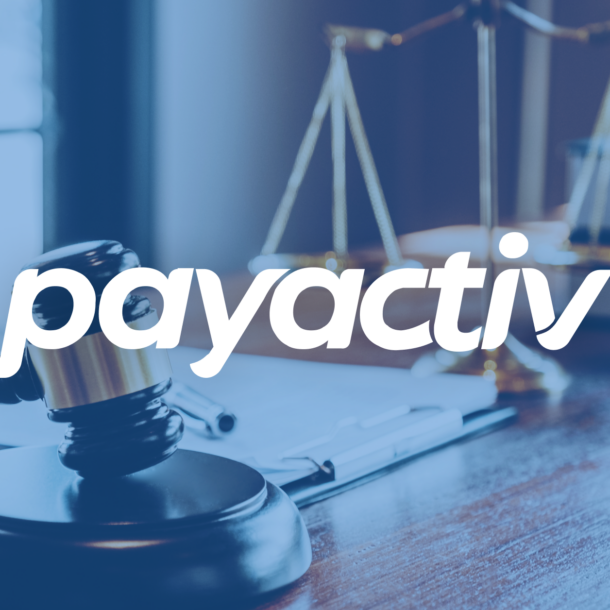
The Role of Empathetic Leadership in the Workplace
Key takeaways:
- Empathetic leadership is a vital business strategy that all leaders need to master to be successful.
- Empathy lets you connect with your teams more deeply and understand their needs and wants.
- Empathetic leadership isn’t about grandiose gestures; it’s about small, meaningful actions, words, and benefits that are low-cost but high-impact.
In this article, we’ll explore the concept of empathetic leadership in the workplace and consider some strategies you can adopt to bring it to life in your business.
Empathy is a concept we’re familiar with in our personal lives, but it hasn’t always featured prominently in our professional ones. During the 1980s and 1990s, many businesses focused primarily on financial results and performance. Bringing your personal life into the working environment was a “no-no,” and for many employees (including leaders), the only person present at the office was their “work persona.”
However, that’s all changing. Compassionate leadership matters more than ever in the modern workplace. An Ernst & Young survey found that 86% of employees believe empathetic leadership boosts morale, and almost 9 in 10 see empathy in the workplace as essential to fostering an inclusive environment. But it seems there’s still much work to be done by U.S. employers:
- More than half of workers believe their company’s efforts to be empathetic toward employees are dishonest.
- 47% believe their company lacks follow-through when it comes to company promises.
The Changing Landscape of the Future of Work and the Role of Empathetic Leadership
Uncertainty emerged as the hallmark of life and the workplace in the 2020s. Business leaders need to accept that whatever further surprises the decade might hold, success requires resilience–the ability to adjust and pivot to meet arising challenges and opportunities.
GoForwardToWork.com identified four characteristics of resilient teams: candor, resourcefulness, compassion, and humility.
What is Empathy?
The word “empathy” means “to feel” and in its most basic sense, empathy involves putting yourself in another person’s shoes and being able to sense their emotions. In the context of business leadership, empathy involves:
- Cognitive empathy: The ability to see things from multiple angles and understand another person’s point of view.
- Emotional empathy: The ability to feel what another person is feeling and identify with their emotions as if they were your own.
- Physical empathy: The ability to understand and respond to another person’s physical sensations. For example, if someone is opening up to you about personal challenges they’re experiencing, you might deliberately mirror their body language to indicate that you understand what they’re feeling.
What is Empathetic Leadership?
Empathetic management happens when leaders care about their colleagues and teams are prepared to have hard conversations about accountability, performance, and individual growth. This is because they care about and believe in the person and their abilities, holding them to a higher standard.
The Benefits of an Empathetic Leadership Style
Empathy plays an integral role in modern business strategies and can deliver compelling benefits:
Improved Collaboration and Engagement
When employees experience leadership with empathy, they feel more valued and motivated to do more for their colleagues and the business. This ultimately aids in higher levels of employee engagement and collaboration.
Increased Creativity and Innovation
Giving people a safe space to share their perspectives and feel comfortable taking sensible risks without fear of consequences catalyzes new ideas and thinking.
Improved Business Performance
When people feel part of an inclusive team where everyone is supported, heard, and valued, morale and loyalty increase, ultimately boosting productivity, revenue, and growth.
The Link Between Empathetic Leadership and Employee Retention
Empathetic leadership and employee retention are closely intertwined. That’s because when leaders demonstrate empathy—seeking to understand and address their people’s emotional and practical needs—they foster an environment of trust, mutual respect, and inclusivity. This can significantly boost employee satisfaction and loyalty, leading to lower turnover rates.
Different Empathetic Leadership Styles
Here are a few empathetic leadership styles:
- Transformational Leadership: Here, leaders focus on inspiring and motivating teams to excel beyond expectations. They do this by understanding people’s personal aspirations and aligning them with the broader goals of the business, fostering personal and professional growth.
- Servant Leadership: These leaders prioritize the needs of their teams above their own. By actively listening and empathizing with challenges, servant leaders continually strive to eliminate obstacles to their teams’ success.
- Participative Leadership: With this style, leaders encourage collaboration and seek input from team members when making decisions. By valuing each person’s contributions, they demonstrate a deep respect for others’ insights and perspectives.
- Coaching Leadership: Coaching leaders focus on individual development and performance improvement. They seek to understand their team members’ strengths, weaknesses, and aspirations, and provide personalized support to help them thrive.
Empathetic Leadership in Practice
How confident are you that you’re an empathetic leader? If you’re in any doubt, here are a few steps you can take to get started:
Support Employees with Meaningful Benefits
As the cost-of-living crisis rages on, financial stress is rife among U.S. workers. Empathetic leaders are taking steps to support the financial well-being of their employees by imparting financial education and offering online tools, in-person assistance, and other budgeting and financial services.
Earned Wage Access (EWA) is increasingly becoming a popular benefit that helps employees reach their financial wellness goals. It allows employees to quickly access the money they’ve already earned before payday, easing their financial stress and lowering the risk of falling into debt. Additionally, it helps protect employees from predatory lending options such as payday loans, title loans and overdraft fees.
With a service provider like Payactiv, employees can use their earned wages to pay for services like Uber and Amazon and pay their bills directly through the Payactiv app. We also offer additional perks like discounts, special offers, budgeting and saving tools, and free 1:1 financial counseling.
Set Standards for Workplace Communication
Principles such as compassion, patience, and kindness should be at the center of all workplace communication. Employees in all roles and levels must have appropriate channels to express their emotions without fear of being discriminated against, judged, or ignored. We recommend that leaders issue a “communication charter” that sets a standard for good communication between co-workers, management teams, and senior leaders so everyone is clear on what’s expected.
Ask Questions That Matter
Empathetic leaders set time aside to give and receive feedback. These catch-up sessions should take place outside of formal review processes. The best way to do this is by asking open-ended questions, such as:
- Are there any struggles you want to share?
- What do you wish your supervisor knew and understood about you?
- What’s the biggest hurdle you’re currently facing at work, and how can I help?
Regular check-ins with team members will go a long way to building trust. Empathetic leaders understand that employees are invaluable resources who must be shown the necessary support to thrive.
Resist the Urge to “Fix” Feelings
When leaders are having difficult conversations with their team members, their natural instinct is often to try and fix the situation, particularly how employees are feeling. But true empathy isn’t about fixing things, and such an attitude rarely improves things. Instead, empathetic leaders speak slowly and pause regularly. This ensures they find the right words to help defuse negative emotions.
Practice Small Acts of Kindness
In an attempt to conserve energy for themselves, some leaders turn inwards when under pressure. Even if you’re feeling stressed and don’t have any spare bandwidth, don’t forget to spend a little time or energy on someone else in your team that you know is also feeling stressed or strained. Simple gestures like sending a text message of support to team members having a hard time or picking up coffee and donuts for everyone to enjoy on your way to work will send them a message that you care.
Don’t Jump to Conclusions
Empathetic leaders don’t jump to conclusions and pass judgment, even when what is being said or done is at odds with their beliefs. They find the strength to let go of their biases and attune to others’ perspectives. Instead of categorizing colleagues’ feelings rightly or wrongly, they use them to view the world differently. This gives them a better vantage point to understand what others are experiencing, enabling them to demonstrate true empathy.
The Future of Business is Founded in Emotional Intelligence in Leadership
The ability to empathize is a vital business strategy that all leaders need to master to be successful. Practicing an empathic leadership style allows you to connect with your teams more deeply and understand their needs and wants. But true compassionate leadership is not about grandiose gestures; it’s about small, meaningful actions and words that are low-cost but high-impact. Empathetic leadership is the future of an effective, productive, and loyal workforce, and it just makes good business sense.
Get Payactiv for your business
© 2025 Payactiv, Inc. All Rights Reserved
24 hour support: 1 (877) 937-6966 | [email protected]
* The Payactiv Visa Prepaid Card and the Payactiv Visa Payroll Card are issued by Central Bank of Kansas City, Member FDIC, pursuant to a license from Visa U.S.A. Inc. Certain fees, terms, and conditions are associated with the approval, maintenance, and use of the Card. You should consult your Cardholder Agreement and the Fee Schedule at payactiv.com/card411. If you have questions regarding the Card or such fees, terms, and conditions, you can contact us toll-free at 1-877-747-5862, 24 hours a day, 7 days a week.
** Central Bank of Kansas City does not administer, nor is liable for earned wage access.
Payactiv holds earned wage access services (EWA) license number 2591928EWA with the Wisconsin Department of Financial Institutions.
Apple and the Apple logo are trademarks of Apple Inc., registered in the U.S. and other countries. App Store is a service mark of Apple Inc., registered in the U.S. and other countries.
Google Play and the Google Play logo are trademarks of Google LLC.
Galaxy Store and the Galaxy Store logo are registered trademarks of Samsung Electronics Co., Ltd.

